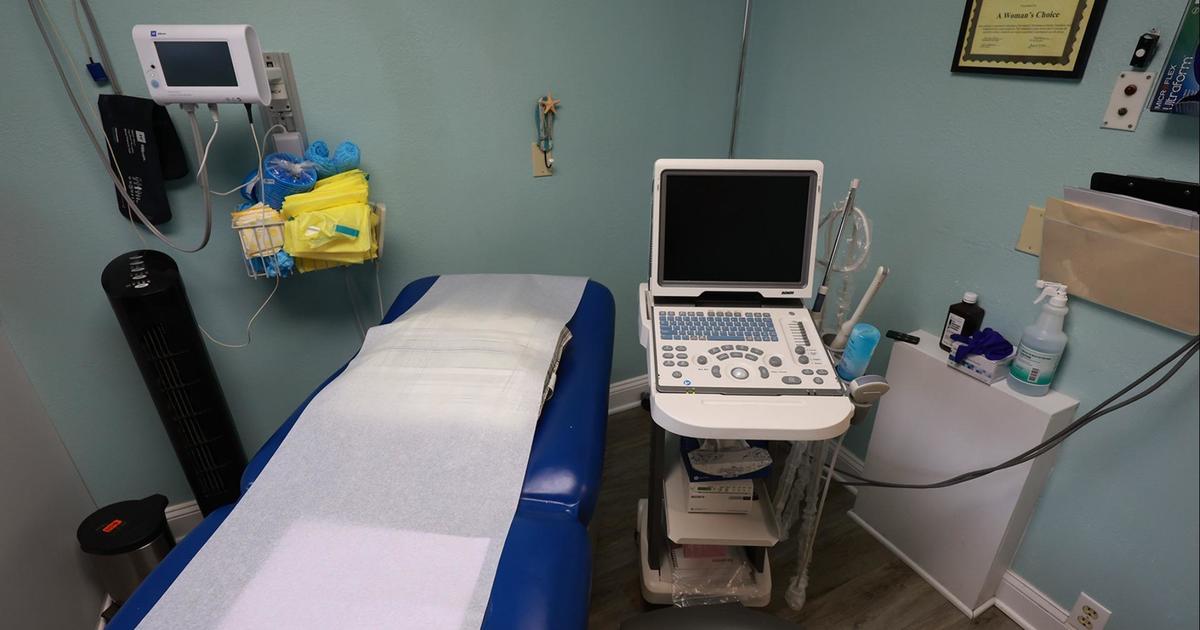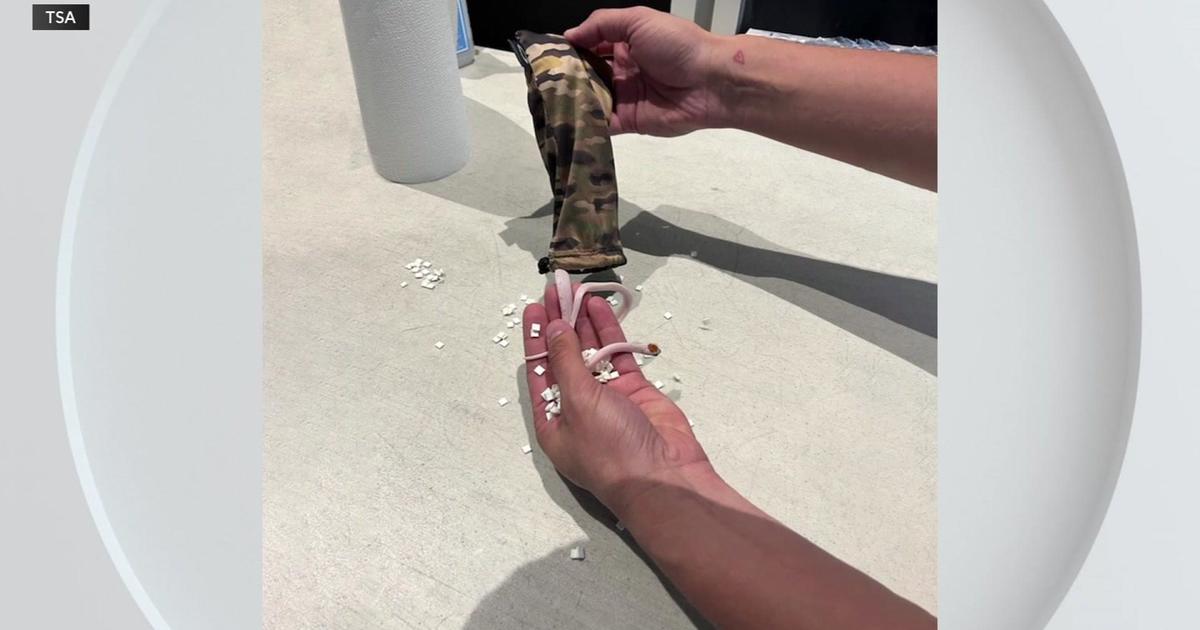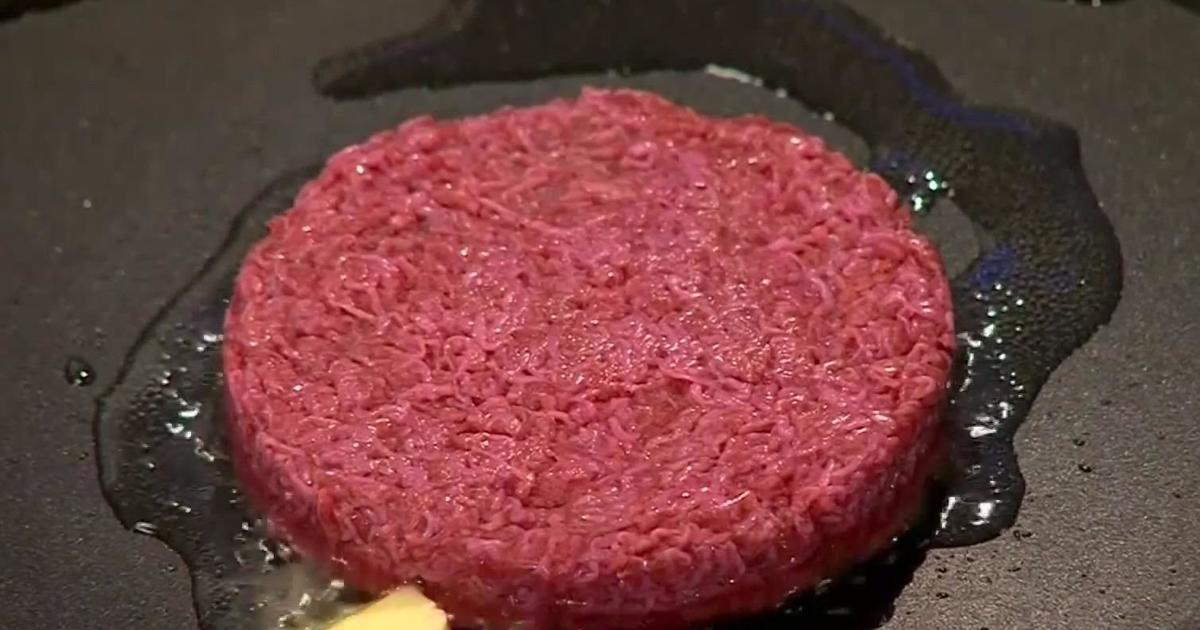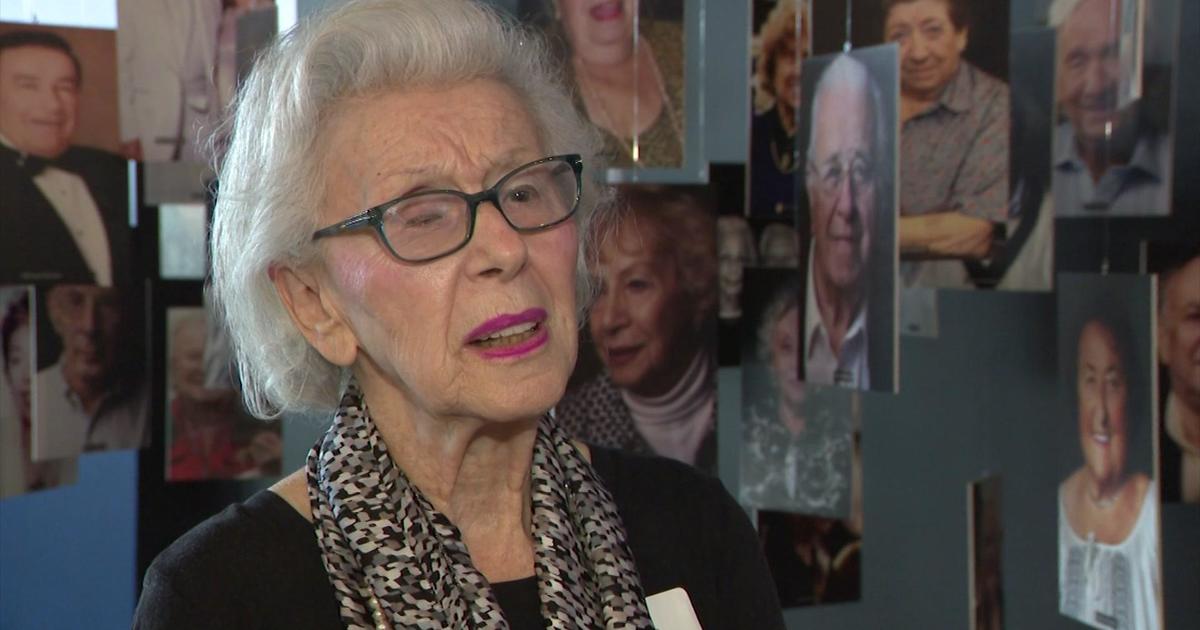Questions Swirl About Detention Center Hurricane Plan
TALLAHASSEE (CBSMiami/NSF) - Almost a month into Florida's hurricane season, state and local emergency officials have few details about the federal government's plans for evacuating migrant children from a controversial Homestead detention facility if a hurricane comes toward Miami-Dade County.
But the federal government says there is a plan.
Federal officials say all migrant children in their care would be evacuated and given "safe transportation" to a temporary shelter, according to an email sent to U.S. Rep. Debbie Mucarsel-Powell, a Democrat whose district includes the Homestead shelter.
For weeks, Mucarsel-Powell has been trying to get details about evacuation plans. But her office said she has seen no "comprehensive adequate plan." Only an email, with six bullet points broadly summarizing what would happen in case of an emergency.
Emergency management officials in Miami-Dade County, where the detention center is located, have had "several discussions" with officials at the facility about evacuation plans.
"Although we have no specific details, we have been informed that there is a plan in place to evacuate the minors should the need arise," the Miami-Dade Office of Emergency Management told The News Service of Florida in a statement.
The statement added the county is ready to help provide staff at the shelter "in the event there are unforeseen changes in the arrival of a storm to our area."
One of the reasons local officials are focused on the facility's evacuation plan is because the shelter sits in one of the state's most vulnerable hurricane zones, with storm surge being a major concern. In 1992, Hurricane Andrew made landfall near Homestead as a Category 5 storm, devastating the area.
The U.S. Department of Health and Human Services' Office of Refugee Resettlement, which oversees the facility, said in an email to Mucarsel-Powell that a private contractor running the facility is "required" to have plans for a range of emergencies.
The office said it is working to "validate that plan" with Comprehensive Health Services, which has held a multimillion-dollar contract with the Department of Health and Human Services since February 2018. It is also working to ensure there is adequate space at the "identified evacuation site" because the number of migrant children at the shelter continues to grow.
When asked whether the state had been looped into that plan, Florida Division of Emergency Management spokesman Jason Mahon said the federal government is "not required to submit a Comprehensive Emergency Management Plan for state review."
Bryan Koon, who served as head of state Division of Emergency Management under former Gov. Rick Scott, said as long as the federal government is confident that its plan will not fall apart during an emergency, and it is aware of the local and state plans for the area, there should be no need for concern.
The issue, Koon said, would be if the federal government plans to use local or state resources to be able to execute its plan. According to the email sent to Mucarsel-Powell, the facility's plan seeks to "avoid burdening Florida state or Miami-Dade local government's emergency management authorities."
"If it were up to be, I would say, 'They better have their own plan. They better not screw it up. And they better not mess with my plan if their plan falls apart because I have too much to deal with,'" Koon said.
Mahon did not immediately answer whether the state would be prepared to support the evacuation of up to 3,000 children if the plan proves to be inadequate.
As of June 14, the facility had 2,460 migrant children, an 80 percent increase from when it first opened last February. In case of a hurricane, it was not clear whether children would be transported by bus or plane, or how long it would take for them to get to a safe location. The Department of Health and Human Services did not immediately respond to request for comment.
Hurricane season started June 1 and will last until Nov. 30.
Questions about the safety of children at the Homestead shelter during a potential hurricane come amid high-profile issues at a Texas detention facility, where hundreds of migrant children were held for weeks without access to soap, clean clothes or adequate food, according to reports from a group of lawyers who were given access to the facility. Unaccompanied children have been sent to the facilities after crossing the country's southern border.
Mucarsel-Powell has called for the Trump administration to shut down the Homestead shelter, saying children were being kept in "prison-like" conditions. She has also invited Democratic presidential candidates, who are in Miami for the first primary debates Wednesday and Thursday nights, to visit the site.
U.S. Sen. Elizabeth Warren of Massachusetts, South Bend, Ind., Mayor Pete Buttigieg, former U.S. Rep. Beto O'Rourke of Texas, U.S. Sen. Kamala Harris of California and former Housing and Urban Development Secretary Julian Castro planned visits to the detention center. Warren visited the site Wednesday.
ABOUT THE FACILITY
The Homestead shelter, which is the only for-profit child detention center in the country, houses approximately 3,000 children, all ages 13 to 17 years old.
It is the largest child detention center in the United States for unaccompanied minors.
The facility is run by Caliburn International, a Virginia based company awarded a government contract to manage the center.
President Donald Trump's former Chief of Staff, General John Kelly, is on the company's board.
Caliburn International operates the facility under a no-bid contract that is worth more than $350 million.
They are waiting to be reunited with their families or paired with sponsors once they are screened by the U.S. government.
Many of the children are fleeing gang and domestic violence and will end up seeking asylum.
Children sleep up to 12 per room in steel-framed bunk beds, and warehouse-sized, air-conditioned white tents where minors attend classes and watch movies.
The facility has a command center. Inside are cameras, computers, and staff members who watch over the kids. They keep track of how many kids are in the shelter and how many are moved.
While numbers vary, officials say most are reunited with family members. Those who are not can be at the shelter for as long as 57 days. On average, a child's stay there is about 25 days.
The children have school six hours a day and there are recreational activities.
At night, lights go out in the rooms at 10 p.m. but are left on in the hallways. The children are awakened each day at 6:30 a.m. for a full day's program of activities and classes.
During the day, the kids are provided breakfast, lunch, dinner, and three snacks.
The children meet with their attorneys once a week. They also have access to clinicians and social workers.
On their arrival, they are given a five day supply of clothes, laundry is done every other day.
The facility, contracted by the Department of Health and Human Services, is surrounded by chain-link fence, but there is no barbed wire. There are guards, but they are not armed. Doors have been removed from the dormitory bedrooms.
(©2019 CBS Local Media. All rights reserved. This material may not be published, broadcast, rewritten, or redistributed. The News Service of Florida's Ana Ceballos contributed to this report.)



